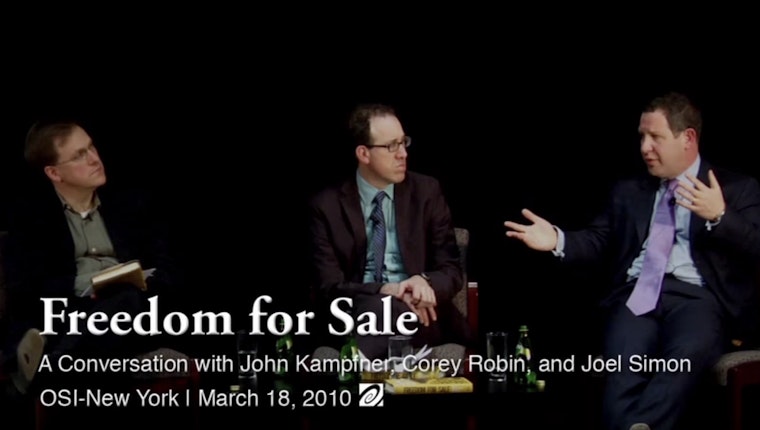
When the Soviet Union collapsed in 1991, Western commentators were quick to assert that liberal democracy and capitalism had won the day. The truth was more complex. Authoritarian governments in China, Singapore, and later, Russia, deftly separated democracy from capitalism, offering their citizens a choice. They could embrace all the comforts of a consumerist society, so long as they surrendered their civil liberties.
Freedom for Sale (Basic Books) is a portrait of a new paradigm of authoritarian capitalism, which is making inroads not just in the East, but in America as well. At this Open Society Institute event, author John Kampfner discusses his argument that this model represents a “pact” between governments and their middle class subjects. As long as citizens consent to stay out of politics and keep to themselves, in return they receive all the creature comforts they desire.
The cost is small, insofar as the average citizen is concerned—but as soon as activists and journalists get involved, the pact has swift, deadly consequences. Crackdowns on journalists in China, detentions of political dissidents in Singapore, and thuggish intimidation and assassinations in Russia are all part and parcel of this system, but even so, the pact seems more popular, and more successful than ever.
Speakers
- John Kampfner, author of Freedom for Sale
- Joel Simon, executive director for the Committee to Protect Journalists
- Corey Robin, professor of political science at Brooklyn College and the Graduate Center of the City University of New York (moderator)